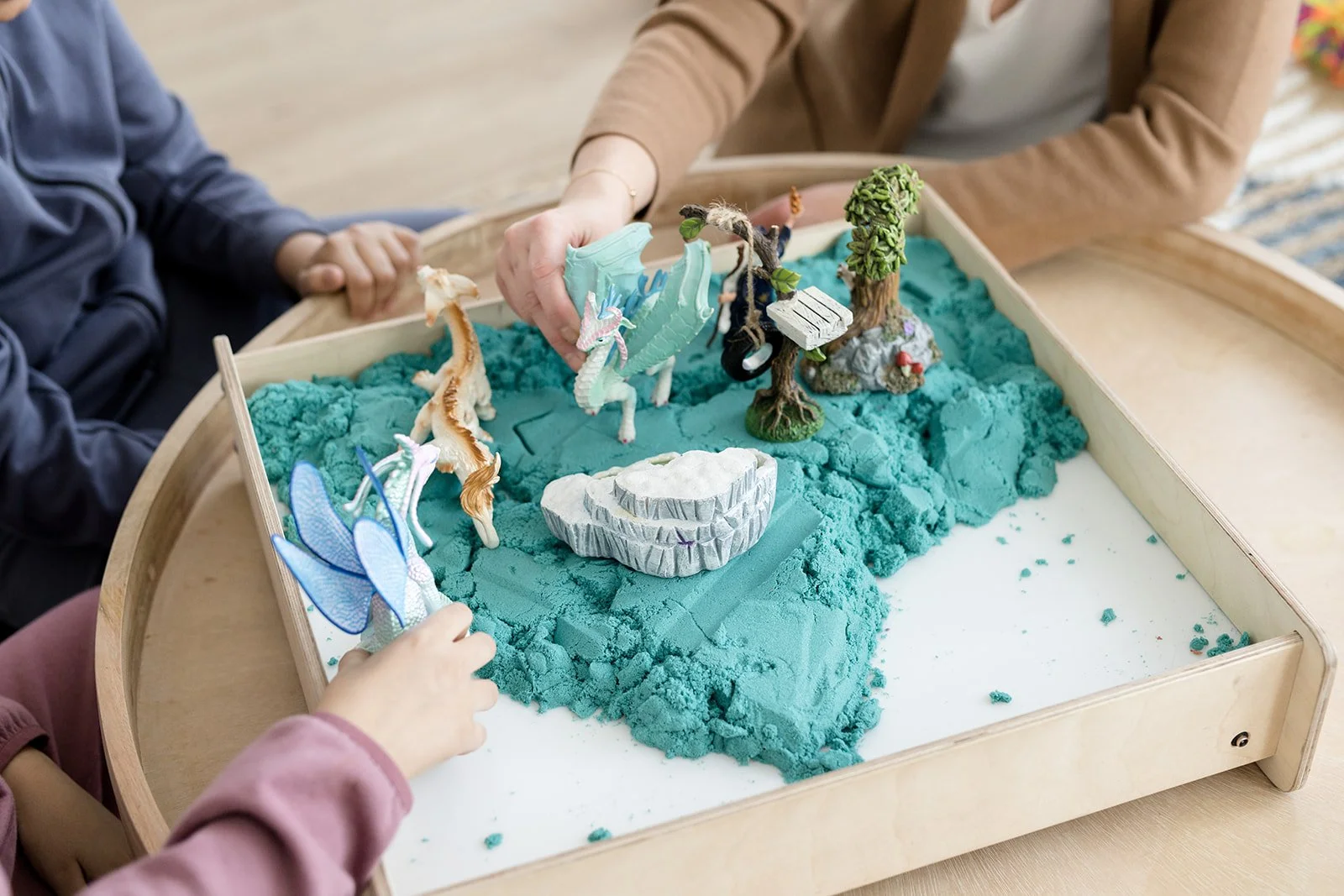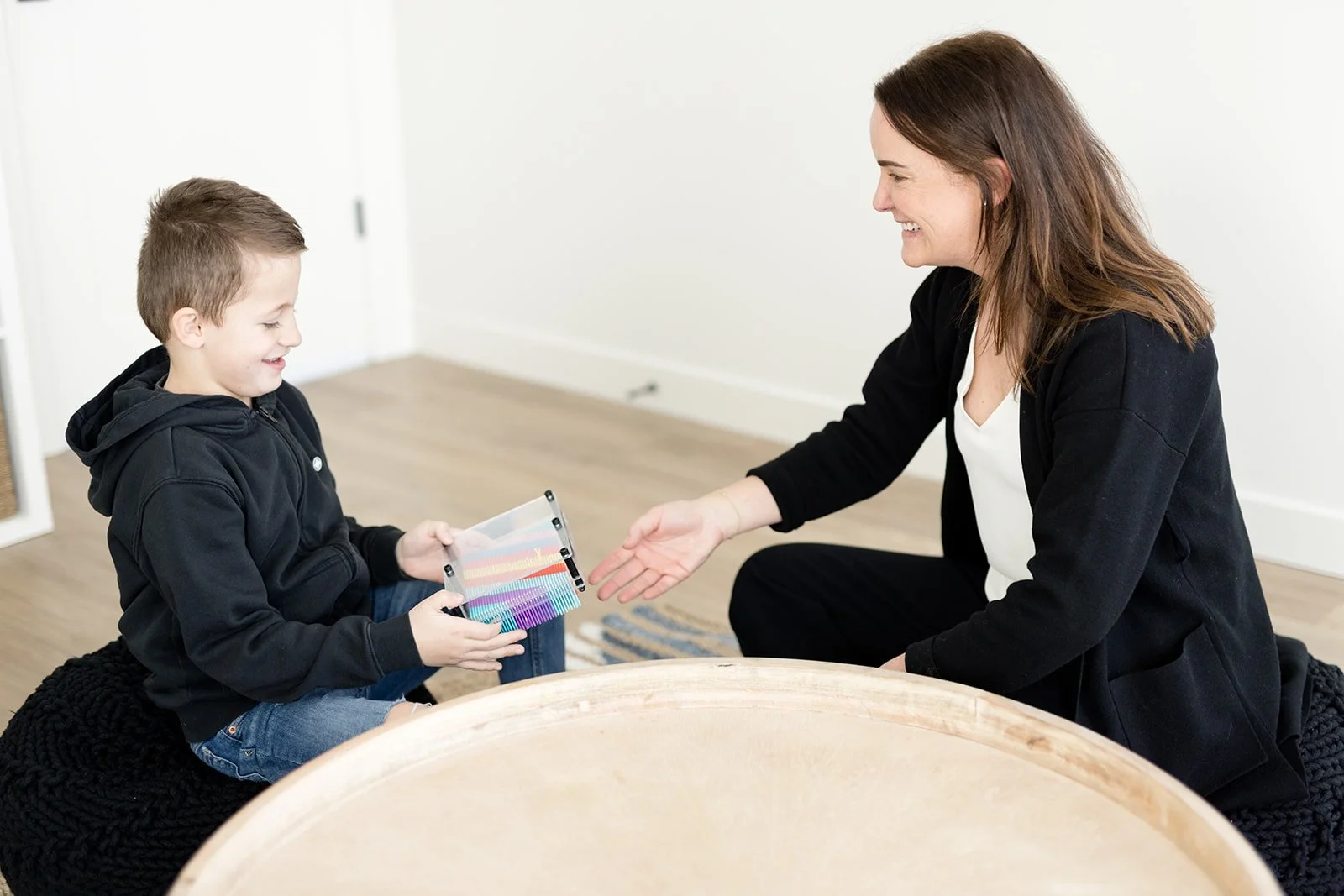Imaginative Play for Children with ASD | Calgary Therapy Support | Creative Sky Psychology
Imaginative play—often called pretend play—is a key part of childhood development. It’s how children make sense of the world, practice communication, and explore emotions in a safe, creative way.
For children with Autism Spectrum Disorder (ASD), imaginative play can sometimes be more challenging, as it requires flexible thinking, perspective-taking, and symbolic imagination. However, when children with ASD are supported in developing this type of play, the rewards are truly transformative.
Parents in Calgary often ask how imaginative play can benefit children with ASD and how they can nurture these skills at home. The good news? With patience, structure, and creativity, every child can learn to engage in meaningful, joyful play that strengthens connection and learning.
Why Imaginative Play Matters for Children with ASD
Pretend play strengthens many areas of development that are often more challenging for children on the spectrum. It’s not just “fun”—it’s a form of learning that helps build social, emotional, and communication skills.
Imaginative play supports:
Social skills: Taking turns, sharing ideas, and following social cues help children practice empathy and cooperation.
Communication: Play often encourages both verbal and nonverbal expression, helping children use language more naturally.
Cognitive flexibility: Pretend scenarios encourage flexible thinking and adaptability—skills that make transitions and routine changes easier.
Problem-solving: Through role play, children explore creative solutions in safe, low-stress situations.
Emotional regulation: Acting out stories allows children to express and process feelings in a constructive way.
For children with ASD, imaginative play can also increase motivation to engage socially. When play is built around a child’s interests—such as trains, animals, or superheroes—it can become a bridge between structured learning and joyful connection.
Play therapy gives kids with autism a safe space to practice communication, empathy, and flexibility — all through fun and creativity. The brain learns best when children feel joyful and engaged!
Many children with ASD find sensory activities — like water play, sand trays, or textured toys — soothing. These experiences help regulate the nervous system and support focus and emotional balance.
Supporting Imaginative Play at Home
Encouraging imaginative play takes patience, creativity, and structure. Every child’s play style looks different—some children prefer building or sensory play, while others enjoy storytelling or acting.
Parents can try:
Creating a play space: Set up a consistent area where play is encouraged and expectations are clear. This might be a small corner with soft lighting, toys, costumes, or art supplies.
Using visual supports: Children with ASD often respond well to visuals. Use storyboards, picture cards, or visual sequences to outline play routines or stories.
Modeling play: Show your child how to pretend. Demonstrate simple roles like “cooking dinner” or “helping a friend,” then invite them to join in.
Incorporating interests: If your child loves dinosaurs, create a story where dinosaurs have a birthday party or go on an adventure. Using their passions creates motivation to participate.
Starting simple: Begin with structured, concrete play scenarios—like grocery shopping or caring for a pet—before moving to abstract themes.
Encouraging peer play: Playdates or social groups, especially those supported by therapists or educators, can give children guided practice in turn-taking and shared imagination.
Exploring technology: There are many apps and games designed to encourage pretend play, story-building, and emotional awareness in children with ASD.
Seeking therapy: Play therapy, occupational therapy, or social skills groups can help children build the foundational skills they need for imaginative play—like flexibility, attention, and emotional regulation.
Supporting pretend play doesn’t mean pushing a child to “play a certain way.” It’s about meeting them where they are and helping them build from there.
Activities to Encourage Imaginative Play
Play doesn’t have to be complicated or scripted. Everyday activities can provide natural opportunities for creativity and imagination.
Try these simple ideas:
Act out real-life scenarios like cooking, grocery shopping, or going to the doctor.
Build stories together using picture books or story prompts. Ask, “What happens next?”
Play with dolls, puppets, or action figures to explore emotions, conversations, or problem-solving.
Create props and costumes with craft supplies, cardboard, or recycled materials.
Build forts, tents, or “houses” indoors or outdoors for open-ended, imaginative exploration.
Use sensory elements—like water play, sand, or clay—to inspire imaginative scenes and stories.
Each small play moment builds confidence, social understanding, and connection between parent and child.
When to Seek Support in Calgary
If imaginative play feels consistently difficult for your child, professional support can make a meaningful difference. A Calgary child therapist can assess your child’s developmental needs and use structured, evidence-based approaches—such as play therapy, social skills groups, or occupational therapy—to build confidence and connection.
At Creative Sky Psychology, our therapists specialize in supporting children with autism and related neurodevelopmental differences. We focus on helping children grow emotionally, socially, and creatively through play. Reaching out for help doesn’t mean something is wrong—it means you’re giving your child every opportunity to thrive.
Final Thoughts
Supporting imaginative play in children with ASD is a journey that takes creativity, structure, and patience. While it may not come naturally at first, even small steps can make a big difference. Pretend play helps children build confidence and self-esteem, improve social connections, and develop essential life skills—all while having fun.
At Creative Sky Psychology, our Calgary team is here to guide both you and your child. Whether through play therapy, autism support, parent counselling, or family counselling, we can work together to encourage your child’s growth and resilience. If you’re seeking extra support, explore our child therapy in Calgary and assessments to learn more about our autism support services.
📍 Visit us: #5, 2005 37 Street SW, Calgary, AB T3E 3A5
📞 Call: 587-331-4464 ext. 1
✉️ Email: info@creativeskypsychology.com
🌐 Book online today to help your child thrive. 👋 Meet our team
Looking for therapy for older teens, post-secondary students, or adults? Visit our sister clinic, NU Psychology in Calgary, where mental health support is available at every stage of life.
-
Parents can create a structured play space, use visual supports, and incorporate a child’s unique interests. Modeling simple scenarios and practicing regularly helps children with ASD engage more confidently.
-
If imaginative play remains difficult or affects your child’s development, professional guidance may help. Calgary child therapists and autism specialists use play therapy, occupational therapy, and social skills groups to build these skills.
-
Pretend play supports communication, social skills, problem-solving, and emotional regulation. With consistent support at home and, if needed, therapy in Calgary, these benefits can positively impact your child’s daily life and future success.


